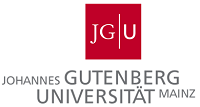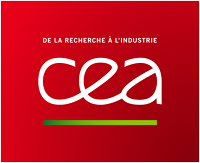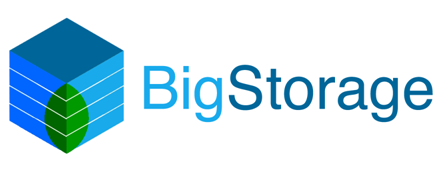Partners
Ontology Engineering Group (OEG), Universidad Politecnica de Madrid (UPM) (Coordinator)
 Universidad Politécnica de Madrid (UPM) is the largest Spanish technological university as well as a renowned European institution. With two recognitions as Campus of International Excellence, it is outstanding in its research activity together with its training of highly-qualified professionals, competitive at an international level. More than 2,400 researchers carry out their activity at the UPM, grouped in 216 Research Groups, 10 Research Centres and 55 Laboratories, all of them committed to transforming the knowledge generated into advances applied to the production sector. UPM heads the Spanish Universities’ participation in the 7th European Framework Program with more than 292 projects and more than 82M€ funding. The UPM currently holds 50 Marie Curie projects and 42 fellow researchers.
Universidad Politécnica de Madrid (UPM) is the largest Spanish technological university as well as a renowned European institution. With two recognitions as Campus of International Excellence, it is outstanding in its research activity together with its training of highly-qualified professionals, competitive at an international level. More than 2,400 researchers carry out their activity at the UPM, grouped in 216 Research Groups, 10 Research Centres and 55 Laboratories, all of them committed to transforming the knowledge generated into advances applied to the production sector. UPM heads the Spanish Universities’ participation in the 7th European Framework Program with more than 292 projects and more than 82M€ funding. The UPM currently holds 50 Marie Curie projects and 42 fellow researchers.
The Ontology Engineering Group (OEG) has been working on the provision of semantic infrastructures since 1995. It is composed of 40 researchers from different fields: Ontological Engineering, Data Integration, Machine Learning, Linked Open Data, Large-Scale Infrastructures, Semantic e-Science and NLP.
Participants:
María S. Pérez
Jesús Montes
Pierre Matri
Alvaro Brandon
Barcelona Supercomputing Center (BSC)
 The Barcelona Supercomputing Center – Centro Nacional de Supercomputación (BSC-CNS), established in 2005, serves as the National Supercomputing Facility in Spain. The mission of the BSC-CNS is to research, develop and manage information technologies in order to facilitate scientific progress. The BSC-CNS not only strives to become a first-class research centre in supercomputing, but also in scientific fields that demand high performance computing resources such as the Life and Earth Sciences. Following this approach, the BSC-CNS has brought together a criti¬cal mass of top-notch researchers, high performance computing experts and cut¬ting edge supercomputing technologies in order to foster multidisciplinary scien¬tific collaboration and innovation. Personnel of BSC-CNS taking part to the project are members of the Computer Sciences Department of the BSC-CNS. More presascisely, they are members of the Storage System group that has an extensive expenrience with data management in all levels. The group works from the node level to wide-area distributed level. In the node level, the group has contributed on new file systems and optimizations of the I/O stack. At the cluster level, several contributions on cooperative caches as well as heterogeneous and scalable storage systems have been achieved. Finally, the Storage System Group has worked on replica management and location in XtreemFS, which is a wide-area file system.
The Barcelona Supercomputing Center – Centro Nacional de Supercomputación (BSC-CNS), established in 2005, serves as the National Supercomputing Facility in Spain. The mission of the BSC-CNS is to research, develop and manage information technologies in order to facilitate scientific progress. The BSC-CNS not only strives to become a first-class research centre in supercomputing, but also in scientific fields that demand high performance computing resources such as the Life and Earth Sciences. Following this approach, the BSC-CNS has brought together a criti¬cal mass of top-notch researchers, high performance computing experts and cut¬ting edge supercomputing technologies in order to foster multidisciplinary scien¬tific collaboration and innovation. Personnel of BSC-CNS taking part to the project are members of the Computer Sciences Department of the BSC-CNS. More presascisely, they are members of the Storage System group that has an extensive expenrience with data management in all levels. The group works from the node level to wide-area distributed level. In the node level, the group has contributed on new file systems and optimizations of the I/O stack. At the cluster level, several contributions on cooperative caches as well as heterogeneous and scalable storage systems have been achieved. Finally, the Storage System Group has worked on replica management and location in XtreemFS, which is a wide-area file system.
Participants:
Toni Cortes
Ramón Nou
Anna Queralt
Rizk Allah Touma
Georgios Koloventzos
Johannes Gutenberg University Mainz (JGU)
 With 36,500 students from 130 nations, JGU is one of the ten largest universities in Germany. JGU combines most academic disciplines, including a Medical Centre, the School of Music, and the Mainz Academy of Arts. This is unique in the German academic landscape. JGU has a strong research focus and regularly achieves very good positions in international rankings. Annually, about 600 PhD students com-plete their studies at JGU. The Welcome Centre for visiting scholars and students provides support for all contractual, insurance, visa and accommodation issues.
With 36,500 students from 130 nations, JGU is one of the ten largest universities in Germany. JGU combines most academic disciplines, including a Medical Centre, the School of Music, and the Mainz Academy of Arts. This is unique in the German academic landscape. JGU has a strong research focus and regularly achieves very good positions in international rankings. Annually, about 600 PhD students com-plete their studies at JGU. The Welcome Centre for visiting scholars and students provides support for all contractual, insurance, visa and accommodation issues.
Participants:
Andre Brinkmann
Tim Süß
Lars Nagel
Inria
 Established in 1967, Inria is the only French public research body fully dedicated to computational sciences. Jointly supervised by the French ministries for research and industry, Inria's missions are to produce outstanding research in the computing and mathematical fields of digital sciences and to ensure its impact on the economy and society through technology transfer and innovation. Inria develops collaborations with the economic world through strategic partnerships with large firms’ R&D de¬partments and with innovative SMEs, as well as by helping to launch new companies (since 1984, 110 companies have stemmed from Inria). For FP7, Inria has been in¬volved in 229 projects, including 124 in the ICT theme of the Cooperation Programme and 31 ERC grants. Inria is playing a lead role in the construction of the Knowledge and Innovation Community (KIC) EIT ICT Labs as host of the French node. EIT ICT Labs’ ambition is to move beyond R&I and create for Europe a structure dedicated to technology transfer and innovation in the digital field. Inria makes a firm commitment to Horizon 2020, with which the institute’s strategic stance is aligned.
Established in 1967, Inria is the only French public research body fully dedicated to computational sciences. Jointly supervised by the French ministries for research and industry, Inria's missions are to produce outstanding research in the computing and mathematical fields of digital sciences and to ensure its impact on the economy and society through technology transfer and innovation. Inria develops collaborations with the economic world through strategic partnerships with large firms’ R&D de¬partments and with innovative SMEs, as well as by helping to launch new companies (since 1984, 110 companies have stemmed from Inria). For FP7, Inria has been in¬volved in 229 projects, including 124 in the ICT theme of the Cooperation Programme and 31 ERC grants. Inria is playing a lead role in the construction of the Knowledge and Innovation Community (KIC) EIT ICT Labs as host of the French node. EIT ICT Labs’ ambition is to move beyond R&I and create for Europe a structure dedicated to technology transfer and innovation in the digital field. Inria makes a firm commitment to Horizon 2020, with which the institute’s strategic stance is aligned.
More information: http://www.inria.fr
Contributions to this project will come through the ASCOLA and KERDATA Project Teams of the Inria Rennes-Bretagne-Atlantique Research Centre. ASCOLA focuses on the development of new abstractions for programming complex systems in charge of operating large-scale distributed infrastructures. KerData’s research addresses the area of distributed data management at challenging scales, with a particular focus on clouds and Post-Petascale HPC systems.
Participants:
Adrien Lebre
Gabriel Antoniu
Alexandru Costan
Shadi Ibrahim
Ovidiu Marcu
Yacine Taleb
Linh Nguyen
FORTH
 The Foundation for Research and Technology - Hellas (FORTH) is the premier research centre in Greece, internationally acknowledged for its excellence in basic and applied research, in developing applications and products, and in providing services. The Insti¬tute of Computer Science (ICS), one of the seven Institutes of FORTH, will be contrib¬uting to this project. FORTH has a 30-year history of internationally competitive R&D contributions across the fields of Information & Communication Technologies, as well as of academic and industrial cooperation; it has adopted an evolving strategy to pro¬mote the commercial exploitation of R&D results by providing services, licensing prod¬ucts to industrial partners, contracting with industrial partners to jointly develop new products, and participating in spin-off companies and joint ventures. FORTH represents Greece in the European Research Consortium for Informatics and Mathe¬matics (ERCIM). The Institute ranked first among all Greek institutes of its field in the 2005 national evaluation.
The Foundation for Research and Technology - Hellas (FORTH) is the premier research centre in Greece, internationally acknowledged for its excellence in basic and applied research, in developing applications and products, and in providing services. The Insti¬tute of Computer Science (ICS), one of the seven Institutes of FORTH, will be contrib¬uting to this project. FORTH has a 30-year history of internationally competitive R&D contributions across the fields of Information & Communication Technologies, as well as of academic and industrial cooperation; it has adopted an evolving strategy to pro¬mote the commercial exploitation of R&D results by providing services, licensing prod¬ucts to industrial partners, contracting with industrial partners to jointly develop new products, and participating in spin-off companies and joint ventures. FORTH represents Greece in the European Research Consortium for Informatics and Mathe¬matics (ERCIM). The Institute ranked first among all Greek institutes of its field in the 2005 national evaluation.
Contributions to this project will come from the Computer Architecture and VLSI Sys¬tems (CARV) Laboratory of FORTH; it has a 25-year history in systems software, archi¬tecture, and hardware design R&D. In the area of storage researchers at FORTH have over the last few years conducted pioneering research in storage acceleration, which eventually has led to industrial collaborations and applying research results to products.
Participants:
Angelos Bilas
Manolis Marazaki
Xyratex, A Seagate Company
 Xyratex Technology Ltd is a wholly owned subsidiary of Seagate Technology plc, one of the world’s largest data storage companies. The UK based participating entity of this proposal is part of the ‘Cloud Systems and Solutions’ Division of Seagate.
Xyratex Technology Ltd is a wholly owned subsidiary of Seagate Technology plc, one of the world’s largest data storage companies. The UK based participating entity of this proposal is part of the ‘Cloud Systems and Solutions’ Division of Seagate.
The Xyratex heritage is long, with roots in IBM particularly with data storage and disk drive solutions starting at our Havant UK facility in 1959. Xyratex was formed through MBO in 1994 and develops both disk drive process equipment, and data storage solutions, growing to become the world’s largest OEM data storage systems supplier, in 2010 the company extended its business addressing HPC and BigData solutions and has (through its partners) one of the world’s fastest data storage systems installed in NCSA, and installations in UK and Europe. Acquired by Seagate a major disc drive developer and manufacturer in March 2014 the organisation continues to serve the HPC and Cloud markets for data storage systems.
Xyratex, a Seagate Company, is an active member of the ETP4HPC promoting and working to extend the ecosystem surrounding European HPC.
Participants:
Malcolm Muggeridge
Sai Narasimhamurthy
Folios Papaodyssefs
DKRZ
 DKRZ, the German Climate Computing Centre, provides tools capable of addressing the complexity of world climate and the endless change in its individual components and their manifold interaction as well as the associated services which are needed to investi¬gate the processes in the climate system: Computer power, data management, and guid¬ance to use these tools efficiently. As a national service provider, DKRZ operates a super¬computer centre to enable climate simulation and provides the scientific users with the technical infrastructure needed for the processing and analysis of climate data. This also includes support for related application software, and advice and support in data pro¬cessing issues. Finally, DKRZ also participates in national and international joint projects with the aim of improving the infrastructure for climate modelling.
DKRZ, the German Climate Computing Centre, provides tools capable of addressing the complexity of world climate and the endless change in its individual components and their manifold interaction as well as the associated services which are needed to investi¬gate the processes in the climate system: Computer power, data management, and guid¬ance to use these tools efficiently. As a national service provider, DKRZ operates a super¬computer centre to enable climate simulation and provides the scientific users with the technical infrastructure needed for the processing and analysis of climate data. This also includes support for related application software, and advice and support in data pro¬cessing issues. Finally, DKRZ also participates in national and international joint projects with the aim of improving the infrastructure for climate modelling.
DKRZ thus constitutes an outstanding research infrastructure for model-based simulations of global climate change and its regional effects. This mission is consistent with the new High-Tech Strategy for climate protection from the Federal Ministry of Education and Research.
Participants:
Thomas Ludwig
Michael Kuhn
Ulf Garternicht
Yevhen Alforov
CA Technologies Development Spain
 CA Technologies Development Spain (CA) is a company of the group of CA Technolo¬gies. CA is a global Information Technology (IT) management software company and it is one of the largest independent software corporations in the world. CA applies decades of experience and innovation to research, develop and deliver software that integrates with other solutions to make an organization’s technology investments more valuable. The company supports software which runs in mainframe, distributed, virtualized and cloud environments. CA Technolo-gies, which posted $4.8 billion USD in revenue for fiscal year 2012 maintains more than 100 offices in more than 45 countries. The company employs 14,000 people (March 31, 2012). CA Technologies holds more than 400 patents world-wide, and more than 700 patent applications are pending. CA Labs is the research group of CA, reporting to the Chief Technology Officer. CA Labs was established in 2005 to strengthen relationships between research communities and CA Technologies, working closely with universities, professional associations and government on various. The results of these projects vary from research publications, to best practices, to new directions for products. The research coordination of CA Labs is lead from CA Technologies Develop¬ment Spain. CA Labs will provide its research experience in managing very large data sets and general experience on doing industrial research.
CA Technologies Development Spain (CA) is a company of the group of CA Technolo¬gies. CA is a global Information Technology (IT) management software company and it is one of the largest independent software corporations in the world. CA applies decades of experience and innovation to research, develop and deliver software that integrates with other solutions to make an organization’s technology investments more valuable. The company supports software which runs in mainframe, distributed, virtualized and cloud environments. CA Technolo-gies, which posted $4.8 billion USD in revenue for fiscal year 2012 maintains more than 100 offices in more than 45 countries. The company employs 14,000 people (March 31, 2012). CA Technologies holds more than 400 patents world-wide, and more than 700 patent applications are pending. CA Labs is the research group of CA, reporting to the Chief Technology Officer. CA Labs was established in 2005 to strengthen relationships between research communities and CA Technologies, working closely with universities, professional associations and government on various. The results of these projects vary from research publications, to best practices, to new directions for products. The research coordination of CA Labs is lead from CA Technologies Develop¬ment Spain. CA Labs will provide its research experience in managing very large data sets and general experience on doing industrial research.
Participants:
Victor Muntés-Mulero
Serge Mankovski
Michał Zasadziński
CEA
 CEA as a whole is a major player all along the value chain of HPC from R&D - development of silicon technology, architecture of processors, system integration, software environments and tools – to usages of numerical simulation in many different areas: low carbon energies, technologies for health, information technology, defence and global security, and underlying fundamental research.
CEA as a whole is a major player all along the value chain of HPC from R&D - development of silicon technology, architecture of processors, system integration, software environments and tools – to usages of numerical simulation in many different areas: low carbon energies, technologies for health, information technology, defence and global security, and underlying fundamental research.
CEA also owns and operates two world-class computing infrastructures (TERA and TGCC), and deploys related HPC services, for the benefit of national and European research, industry and defence - access to HPC for industry has been developed for 10 years at CEA CCRT, through an original partnership business model and a dedicated supercomputer of nearly 0.5 petaflop/s.
CEA DIF DSSI is the division in charge of HPC at CEA, in Paris Region. DSSI operates the aforementioned computing centres and leads R&D in hardware and software technologies for HPC systems.
Participants:
Jacques-Charles Lafoucrière
Philippe Deniel
Fotis Nikolaidis
Fujitsu Technology Solutions GmbH
 In Continental Europe, the Middle East, Africa and India, Fujitsu is a leading IT infrastructure provider with a presence in all key markets serving large, medium-sized and small businesses. The company offers a full portfolio of IT products, business solutions and services, ranging from workplace systems to datacentre solutions, managed services, and cloud-based applications and infrastructure.
In Continental Europe, the Middle East, Africa and India, Fujitsu is a leading IT infrastructure provider with a presence in all key markets serving large, medium-sized and small businesses. The company offers a full portfolio of IT products, business solutions and services, ranging from workplace systems to datacentre solutions, managed services, and cloud-based applications and infrastructure.
In Europe Fujitsu Technology Solutions GmbH employs approximately 12,000 people and is part of the global Fujitsu Group.
A broad range of configurable products and systems from Fujitsu’s global product portfolio is developed in Europe and manufactured in an own factory in Augsburg, Germany. As for any IT manufacturing facility in Europe, it is vital to have a flexible world class production chain in place, being competitive and efficient in order to cope with changing and fluctuating business requirements and to compensate European cost-disadvantages by organizational excellence.
The group involved in the project is planning and implementing storage products and storage solutions.
Participants:
Sepp Stieger
Jürgen Münch
Athanasios Kiatipis
Partner Organizations
IBM Ireland
 IBM Research Ireland focuses on advancing science and technology for intelligent urban and environmental systems, by creating analytics, optimizations, and systems for sus¬tainable energy, urban water management, transportation, and the underlying city fabric that assimilates and shares data and models for these domains.
IBM Research Ireland focuses on advancing science and technology for intelligent urban and environmental systems, by creating analytics, optimizations, and systems for sus¬tainable energy, urban water management, transportation, and the underlying city fabric that assimilates and shares data and models for these domains.
Participants:
Bogdan Nicolae
Bull SAS
 Bull designs, implements, maintains and runs leading-edge digital solutions that effectively combine processing power, security and the integration of complex, heterogeneous systems.
Bull designs, implements, maintains and runs leading-edge digital solutions that effectively combine processing power, security and the integration of complex, heterogeneous systems.
Participants:
Eric Monchalin
Informática El Corte Inglés (IECI)
 IECI is a technology consulting company, part of the El Corte Inglés Group, a consulting firm with a commitment to find answers in innovation. The mission of IECI is to work closely with our clients and turn everything they imagine into innovation and succeed for their business. The company currently employs 3,000 professionals. With subsidiaries in 15 countries its annual revenue’s exceeds 950 Million $ per year. Our R&D+i departments are one of our most important assets, developing a large part of our proprietary solutions. IECI Group has been acknowledged over the years by being awarded CMMI, Level 5 accreditation, as well as UNE ISO/IEC‐9001, 20000 and 27000 certifications.
IECI is a technology consulting company, part of the El Corte Inglés Group, a consulting firm with a commitment to find answers in innovation. The mission of IECI is to work closely with our clients and turn everything they imagine into innovation and succeed for their business. The company currently employs 3,000 professionals. With subsidiaries in 15 countries its annual revenue’s exceeds 950 Million $ per year. Our R&D+i departments are one of our most important assets, developing a large part of our proprietary solutions. IECI Group has been acknowledged over the years by being awarded CMMI, Level 5 accreditation, as well as UNE ISO/IEC‐9001, 20000 and 27000 certifications.
Participants:
Juan Carlos Crespo
Julio Moreno
